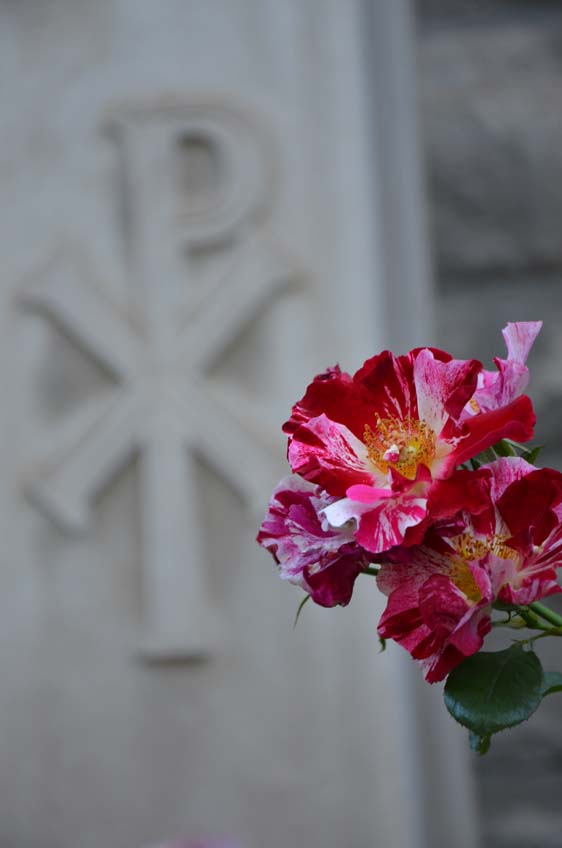
In the shadow of the memorial markers in our lives which mark the graves of dead and dying relationships, there are always new blossoms forming. This set of tough old wild roses near the grave marker of a dead dean remind me that in the shadow of death is always new life. The hard thing in our culture is not that we no longer see friendships die; it is that we do not take the time to mourn them. We spend more time in church collectively, liturgically, intentionally, beautifully observing the physical death of people we barely know and often never even liked while when a friendship dies, we turn away, avert our eyes and get busy with some self-anesthetizing task which will keep us from feeling, considering and wailing.
Like plants and animals, friendships sicken and die. They become infected with the gangrene of envy, betrayal, distrust, disappointment, resentment, anger and the assertions that someone is right and someone is wrong. Or, like so many plants and animals, they die of malnutrition or dehydration or exposure or the effects of a storm. As I begin the manuscript on a new book about friendship, I am thinking a lot about friendship and noticing how few books have been written on the subject. And I am being forced to look at my own friendships, past, present and hoped for; and I am being forced to ask some hard questions, notice some hard trends, and celebrate some stunning successes which light up my life with the joy about which Jesus speaks in the gospels.
When Jesus decided no longer to call us servants, but instead to call us friends, he left a mark in our scriptures which the church seems intent on rubbing out with a tired, old stubby eraser – but to no avail. As hard as the church tries to exert the authority to which it pretends, no matter how hard it tries to apply titles, enforce power structures, demand a loyalty which it secretly knows is only ever earned- this act of friendship-making God did through Jesus seems indelible and undesconstructable.
Yesterday I was faced with the death of a friendship – a few in fact. The awareness was like an ingested poison. I ached inside and felt all the misplaced, undeserved shame and regret we westerners so often feel at the end of a friendship (if, indeed we are mindful enough to even feel the pain – and of course, the determined act of feeling of the pain is the only way out of it.) I could feel the stone grave marker of these dead friendships cold on my palm. But I also smelled a hint of winter roses. So I did what we do when we are in pain. I kept walking. I kept going, hour after hour in the day, I marched on with as much dignity and courage as I could muster. I faltered some, stumbled, swallowed small gulps of wailing yet unreleased. And later that day found myself on a balcony looking out over Denver and the Rocky Mountains. I was with friends. We drank beer. We ate warm brie smothered in honey, roasted pistachios and figs. They were glad I was there and I was glad I was there too. They loved on me and I loved on them. We told our stories, forming friendship like a builder builds a stone wall – one heavy stone at a time. The trust in the air was palpable. As was the smell of roses.

